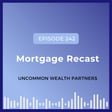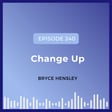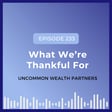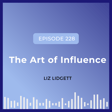
Election Year Investing
In this riveting episode of the Uncommon Wealth Podcast, hosts Phillip Ramsey and Arron Cramer delve into the complexities of investing during a presidential election year. With the 2024 elections on the horizon, emotions are running high from both sides of the political aisle. The hosts aim to shed light on whether these emotions should impact investment strategies and how history has shown us otherwise.
Phillip and Arron specifically discuss the research and data provided by the Capital Group regarding market behavior during election years. They explore how social media amplifies emotional responses and the potential for market volatility. Yet, they stress that staying invested, and perhaps even taking advantage of lower prices during volatile periods, is generally the most effective strategy. They also highlight which market sectors tend to perform well around election periods and identify the types of investors who usually thrive in such conditions. This episode is packed with invaluable insights for anyone looking to navigate the stock market during election time without succumbing to fear or speculation.
Key Takeaways:
- Historical Market Behavior: Over the past 90 years, US stocks have generally trended up regardless of whether a Republican or Democrat won the White House.
- Volatility and Recovery: Markets tend to be volatile before elections but often rebound strongly after, especially in the first year following the primaries.
- Investment Strategies: Investors who stay fully invested or use dollar-cost averaging tend to do better than those who sit on the sidelines.
- Sector Performance: The energy sector tends to perform exceptionally well post-election, while consumer discretionary sectors fare well before elections.
- Psychological Resilience: Taking the emotion out of investing and focusing on long-term goals is crucial during election seasons.
Notable Quotes:
- "Do elections really matter all that much when it comes to investing?" - Phillip Ramsey
- "Markets are emotional, so it doesn't surprise me that people get hesitant to invest in an election year." - Arron Cramer
- "Investors that get nervous and go to the sidelines during election years don't tend to do as well." - Phillip Ramsey
- "The companies don't just sit back and take a break during election years; they plan through whoever's going to be in office." - Arron Cramer
- "Try to take the emotion out of investing in an election year." - Phillip Ramsey
Resources:
This episode is a must-listen for anyone looking to make informed investment choices during an emotionally charged election



















